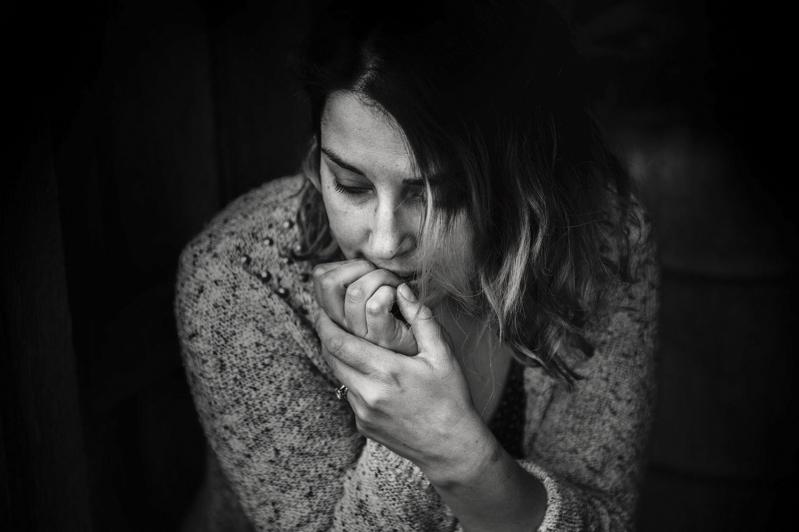To say that the Covid-19 pandemic has had a profound and lasting impact on our lives is, to put it mildly, a gross oversimplification. The pandemic has impacted nearly every aspect of our lives, from having to cope with remote schooling for our children or scrambling for testing to understanding new terms and concepts. Moreover, many will never completely leave behind the scars they bear from witnessing the suffering and loss of so many lives.
In such circumstances, it comes as no surprise that health professionals in myriad settings have so many patients coming into our offices to discuss anxiety and depression. For some patients, these are chronic conditions that have been exacerbated by the extraordinary stressors and challenges of our times. For others, they are new wrinkles in the fabric of their day-to-day lives. I’ve written before about some things that can be done to help in these situations, both at home and in conversations with your doctors.
Yet, what strikes me the most about my conversations with these patients lately is not the new onset of these symptoms and conditions or the severity with which they are presenting but instead that so many people are almost apologetic when they bring up these concerns in our visits. Principally, I find this happens with women, in particular young and middle-aged women. While heartbreaking, especially as a husband and father of three young girls, this is not surprising, as there is a wealth of literature concerning how women and minorities are often not taken seriously in medical situations when expressing concerns and complaints.
“I’m sorry,” they say, as if they have somehow done something wrong. For some patients, this seems to come from a background where they were taught that all you need to get through depression or anxiety is willpower, as if simply deciding to be happy or calm were somehow enough, and that they have failed morally by not being able to do this.
For others, it is clear that their nervousness and apologetic approach come from having previously encountered someone in the medical profession who did not take their concerns seriously. Perhaps they previously saw a doctor about insomnia and were automatically treated as if they were seeking out drugs if they asked about a medicine like Xanax to help with the sleepless nights. Or perhaps they saw a primary care doctor about anxiety and were told the only option was to see a psychiatrist, which can be an incredibly difficult thing to do, especially on the East End, where there simply aren’t enough mental health providers for the number of patients.
Whatever the reason, something has led these patients to a point where they are suffering but feel as if it were their fault, or if not their fault, that there is no easy way to get help. This has happened so often recently that I have finally realized it is an opportunity for me to listen and to learn.
Maybe this or something similar has happened to you.
If it has, I’ll tell you the same thing I tell those patients. First, and foremost, there is nothing good or bad about having anxiety or being depressed. It simply is — a reflection of genetics and environmental factors that sometimes tips over the edge into a disorder that affects our lives. It does not represent a failure of will or make someone a bad person. These are incredibly common conditions that reflect the complex, constant nature of our lives, and just as stress can exacerbate blood pressure, painful life events such as the loss of loved ones or isolation in a time of pandemic can exacerbate these issues. This may seem obvious, but I am frequently struck by how often patients tell me nobody has ever said that out loud to them before.
In my opinion, this is true of most mental health disorders, including addiction. To become addicted to a substance is not a good or bad thing, although the choices we may make to continue addiction such as lying to loved ones or stealing to support a habit can themselves be moral ones. But having an addiction in and of itself does not make you good or bad, any more than having high blood pressure makes you good or bad.
It simply is, and is something that we can often help heal with medicine, therapy, and, perhaps most important, a willingness as physicians to be present and listen with an open, nonjudgmental desire to help. I should be clear — this is not an ideal that I am close to embodying perfectly, but it is the way I was taught to help my patients with anxiety, depression, and/or substance use disorders and what I am trying to do.
Again, having these problems does not make you a failure or a bad person, nor does the fact that sometimes all of the meditation, exercise, healthful eating, and positive thinking are not enough to help control the symptoms. Sometimes, you need a therapist. Sometimes, you need medicine. Often, you need both.
And that is okay. It does not make you a failure, or a bad person.
It simply makes you a person, like the rest of us.
I hope, if these situations sound like you, your doctor is comfortable discussing these things and is striving to listen and to help. If not, don’t give up — find someone who is willing, just as you would do if you had chest pain or trouble breathing. We should all have the opportunity to find happiness and seek health.
Even in the middle of a pandemic.
Note: If you are having severe thoughts of depression or suicide, you can call the Suicide Prevention Hotline at 1-800-273-8255. If you are having trouble with substance use, you can call the Substance Abuse and Mental Health Services Administration helpline at 1-800-662-4357 to find treatment options.
—
Joshua Potter, D.O., a physician with Stony Brook Southampton Hospital’s Meeting House Lane Medical Practice, oversees the practice’s Shelter Island office. He specializes in family and neuromusculoskeletal medicine. Opinions expressed in this column are his personal and professional views and not necessarily those of his employer.




